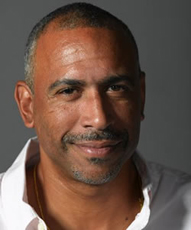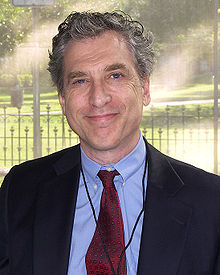Serendip is an independent site partnering with faculty at multiple colleges and universities around the world. Happy exploring!
Notes Towards Day 11 (Tues, Oct. 4): Raised by Wolves, Schooled by Nuns

I. coursekeeping
for Thursday, we continue the "switch up" on the syllabus:
Sendhil Mullainathan & Eldar Shafir, The Packing Problem:
Time, Money, and the Science of Scarcity (book proposal).
..and we will hold another in-class writing workshop, with a new partner:
to prepare for this, please e-mail her your last paper;
please also read hers and come to class with some notes
(to yourself; don't write on her paper) about
what you see as the key ideas and key questions raised--
we will have a 1/2-hour's conversation to help one another
distill and prepare for the next revision (due after break),
in which we will incorporate some of our experiences @ Parkway;
this is NOT about grammar or style but about core ideas, moving forward,
and also about "making your texts not just "writerly" but "readerly"
Friday night (Oct. 7): NO WRITING DUE!!!!!!
FALL BREAK (Oct. 7-16)
When you return--by 5 p.m. Sunday night (Oct. 16):
writing assignment #6 is due.
Take some time to look over all your postings and papers.
Reflect on what's working and what needs working on,
both for you as an individual learner and for the class
as a learning community. How are you using the class?
How do you see others using it? Are there additional ways
you can imagine our using it, to expand our understanding?
E-mail these reflections to Anne, as usual, in the form of a
3-pp. assignment; then write a 1-paragraph summary,
capturing the key points of your assessment, and
post that in our on-line forum.
II. your postings about expectations and what you'll bring to Parkway --
let's talk about this a bit:
what was it like for you,
doing this writing, then reading?
what was most striking, to me was the challenge these
postings posed of speaking in public
about people you are about to meet!
an extension of our conversation about how
to talk productively w/ one another on-line:
using pseudonyms (apologies for the editing; this was a late realization),
but more complicatedly: using other people to think-with
and -about, w/ them in the (virtual) room, not objects of study but
(as per Friere:) co-constructing dialogue in which we all grow;
why I like the open, on-line arrangements: a way of keeping us honest!
in the ongoing challenge of "representing another" (how? can? we?)
given these problematics, that was a probably not such a
good assignment! --realizing this was a surprise for Jody
(w/ decades of work in urban ed) and me
(w/ over a decade in on-line public conversation): to
see what the intersection of these two activities brings up....
For today: Noguera <--> Traub <--> Russell's wolf-girls


III. A week ago, Noguera had told us....
"all children ... can learn and grow in positive and productive ways
when provided the opportunity. I have seen education open doors for
those who lacked opportunity, and open the minds of those who could
not imagine alternative ways of being and living" (p. 10).
"while effort is a key ingredient for individual success ... it is not a guarantee ...
academic failure for large numbers of poor and working-class children is inevitable ....
the failure of low-performing schools does not pose a problem for the economy" (p. 13).
"simply providing access to education is [not!] equivalent to providing equal opportunity ...
We continue to delude ourselves with the notion that the United States is a democracy
based on genuine meritocratic principles; a society where social mobility is determined
by individual talent and effort" (p. 15).
IV. Does Traub agree w/ Noguera? Or challenge his claims?
What does Traub say? What stood out to you in his piece?
(take a moment to find a line, or write a summary of a key idea;
we'll go around and read these aloud....)
Play the believing and doubting game,
in reference to one particular statement:
make two columns on a piece of paper--listing the ways
in which you can support, then challenge, this claim.
V. Bringing in those wolf girls:
how does their story help us think about these questions?
how does it illuminate/contradict/plays with these idea?
What would Nogeura notice about it?
How would Traub--or Paulo Friere, or bell hooks--read it??
VI. from jharmon: cf. Sir Ken Robinson's Changing Educational Paradigms!
---------------------
VII. Reading Notes
Traub says,
"city districts that performed poorly, like those that performed well,
scored almost exactly as the socioeconomic status of the
children in them would have predicted" (p. 52).
"school, by itself, cannot cure poverty ....
there's every reason to think about the limits of school" (p. 54).
are Freire's "limit situations" relevant here??
"there is something disingenuous and self-serving in our professed
faith in the omnipotence of school .... School is central to the
American myth of self-transcendence .... In the national myth ...
schools has the miraculous power of leveling inequalities
even as it lifts everyone" (p. 55).
"money does not buy educational equality ....
school spending is not correlated with school achievement" (pp. 55-56).
"School reform suffers ... from the problem of the ideal case ....
how to make something work on a meaninful scale" [?] (p. 56).
"School is not as powerful an institution as it seems ....
Nor is school quite as all-encompassing as it seems ....
adolescents pay more attention to peers .... the effects of
home and community blotted out almost all those of school ....
we now expect the school to provide all the child's human
and social capital --an impossibility" (p. 57).
"'schools work for people who have ....
human and cultural capital ... to invest in it.
And if they don't, then schooling is going
to be greatly handicapped" (p. 68).
doesn't everyone have cultural capital???
"the critical task is to change 'the ecology of the lower-class
child in order to increase the probability that he will be
more successful in attaining normative skills'" (p. 68).
"if school was only passing on and legitimizing inequality,
the only solution was a socialist-style redistribution of income" (p. 68).
"ghetto children need an enveloping environment that is secure and nourshing" (p. 81).
"move families out of the ghetto environment .... spring the
children free from the isolation of urban poverty" (pp. 90-91).
problematic conclusions re: middle class "cultural capital"
thread re: how many words people have in their vocabulary = stand in for class issues?
= testing/gateway on multiple levels/treated as independent fact/causal link
VII. David Foster Wallace, "Tense Present: Democacy, English,
and the Wars Over Usage," Harper's Magazine (April 2001)--
a review of six books about language usage:
--probing the seamy underbelly of U.S. lexicography reveals ideological strife
--some modern dictionaries are notoriously liberal and others notoriously conservative
--SNOOT is a really extreme usage fanatic
--SNOOTs' attitudes about contemporary usage resemble
religious/political conservatives' attitudes about contemporary culture
--issues of tradition vs. egalitarianism in U.S. English are at root political issues
--the wierd and complicated relationship between Authority and Democracy
in what we as a culture have decided is English
--We regular citizens tend to go to The Dictionary for authoritative guidance.
Rarely, however, do we ask ourselves who decides what gets in.
--linguistic conservatives are formally known as Prescriptivists and linguistic liberals as Descriptivists
--For the pure descriptivists, its impermissible to say that one form of langauge is any better than another ... Descriptivists want to record language as it's actually used.
--an act of observation is itself part of the phenomenon observed and is analyticaly inseparable from it .... decisions about what to put in The Dictionary and what to exclude are going to be based on a lexicographer's ideology.
--People .... judge one another according to their use of language .... at least one component of all this interpersonal semantic judging involves acceptance ... of somebody's bid to be regarded as a peer, a member of somebody else's collective or community or Group.
--"Correct" English usage is ... a function of whom you're talking to and how you want that person to respond.
--the ability to move between various dialects and levels of "correctess," the ability to communicate one way with peers and another way with teachers and another with family ... is a far better indicator of a kids "Verbal I.Q." than test socres or grades, since U.S. English classes do far more to retard dialectical talent than to cultivate it.
--arguments for why SWE [Standard Written English] is a dialect worth learning ... are baldly elitist... SWE is the dialect of the American elite... invented, codified, and promulgated by Privileged WASP Males...perpetuated as a "Standard" by same ... it is the shibboleth of the Establishment and an instrument of political power and class division and racial discrimination and all manner of social inequity...
--In this country, SWE is perceived as the dialect of education and intelligence and power and prestige, and anybody of any race, ethnicity, religion, or gender who wants to succeed in American culture has got to be able to use SWE. That is How It Is...SWE is the dialect our country uses to talk to itself.
--Politically Correct English (PCE) ... is prescriptive ... confused and dangerous .... strict codes of egalitarian euphemism serve to burke the sorts of painful, unpretty, and sometimes offensive discourse that in a pluralistic democracy leads to actual political change .... PCE functions as a form of censorhisp, and censorship always serves the status quo
--Academic English [is]... a grotesque debasement of SWE ... a scholar's vanity/insecurity leads him to write primarily to communicate and reinforce his own status as an Intellectual ... his English is deformed by pleonasm and pretentious diction ... and by opaque abstraction


